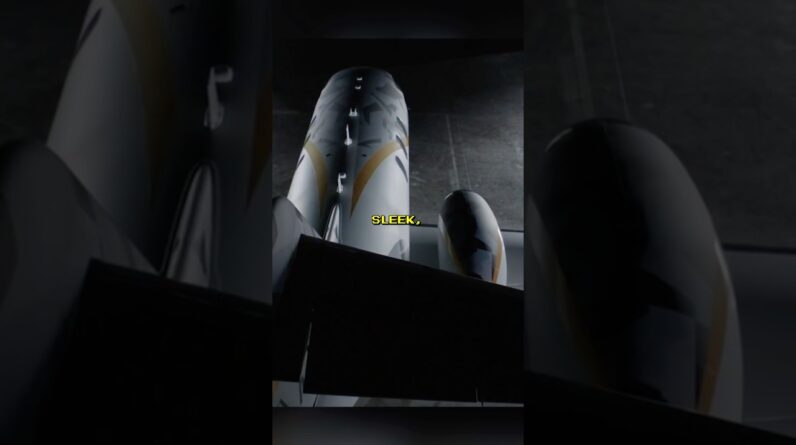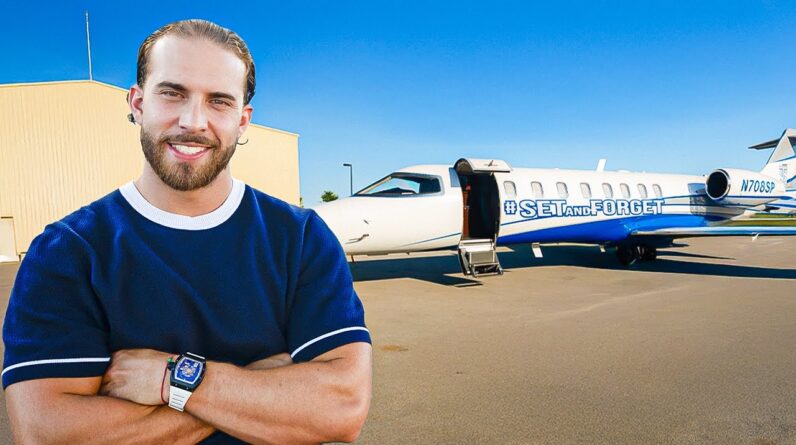In this article, author Jan Jones discusses how executive assistants can practice mindfulness while multitasking.
FlyPrivate is a proud partner and associate of Jan Jones. Jan brings valuable, actionable information to executive assistants across the globe. We hope you enjoy her blogs as much as we do!
Question: Are Mindfulness and Multitasking in conflict for the executive assistant role? I can’t get my job done without multitasking, but I want to be mindful. Can I do both?
Jan Jones: My kitchen has a six-burner stove, double ovens, a toaster oven and a microwave. Sometimes, all six burners are going. I swiftly move between the burners, occasionally stirring two pots at the same time, one with each hand, so nothing burns, boils over, or sets the house on fire. I take a peek inside the oven. I heat up something in the microwave. The kitchen is in high gear and I’m multitasking.
Or am I? According to science I am not, because it is a physical impossibility to do two tasks at once. When we think we are multitasking, what’s happening is that our brains are almost instantaneously switching back and forth from one task to another. It happens so fast that we think we are doing more than one thing at a time.
Thankfully, nature is generous. What the brain can do is keep tabs on two tasks at once, even though we can’t actually do two tasks at once. This ability to keep tabs on two things at once is critical to EAs being successful in their role. It’s how you can keep your eye on those tasks you are juggling. You stir one pot, so to speak, while keeping your eye on the others. This is a desirable ability and one that is well-developed in executive assistants, because you get so much practice. It’s the closest you’ll get to approximating multitasking, and I think it will do fine.
Executive assistants are masters of the workaround. From the inception of the role, we were expert at finding what worked for our needs and using it. Without science to tell us we couldn’t, we did.
I’ve often remarked that being good at multitasking was vital to my success as an EA. What it comes down to is a learned ability to switch back and forth between tasks at a rapid pace, and then quickly regain laser focus. I didn’t need science to tell me that. In fact, science simply validated what I and thousands of assistants were doing; creatively overriding nature’s limitations so we could get the job done. Like mindfulness, it takes discipline and practice. It is not something everyone can do immediately or effectively. You become more proficient over time. It takes practice.
When you return to a task, to avoid wasting time backtracking, I suggest making a note where you left off. Like a bookmark in a book you are reading, it will help you to return to the page you were on. These are tools you can use to lessen the time it takes to refocus. Advanced prep helps you get better at so-called multitasking, because it can help you get back on track faster. Scientists say multitasking steals about 40% of your time, simply because it is a physical impossibility. Maybe being mindful to take certain steps, can cut that time down some. I feel like it does for me. I’m not typically disoriented when I return to a task, because I’ve pre-planned and left clues for myself.
The key is not to attempt multitasking if you are working on complex projects that require 100% of your concentration. It will surely result in you making mistakes, doing the job poorly and taking longer to do it. It helps to batch similar tasks so that it’s easier to switch back and forth, but realistically, EAs don’t always have that option when requests are piling up from a variety of sources, not only distraction from devices.
Devices are a different story because the distraction they cause is akin to addiction. Swedish studies show continuous alerts from devices cause anxiety, depression and raise stress levels. People having separation anxiety when they are away from their phones can mean a psychological disorder. Mindfulness training is one solution for this situation, because it promotes calmness and returns you to yourself.
With experienced EAs, you are an old hand at many tasks. You are confident. It goes smoothly because you’ve done it repeatedly. It seems like you don’t have to think about what you are doing, but if that were the case, you’d make mistakes. And sometimes you do. That’s where the negative effects of attempting to multitask are felt. It happens when you are distracted, not giving complete attention to the work at hand.
Let’s look at Multitasking and Mindfulness. Despite what success coaches and science may say, within the context of the EA role multitasking and mindfulness are not in conflict. Even if true multitasking is a myth, the two can co-exist, because mindfulness is in harmony with everything. Use both cleverly and they can aid you in the EA role. Science might not agree, but there are workarounds so learn to use them.
Mindfulness means intentionally paying attention to the present moment. Not with mental effort and concentration, but in a relaxed way, through the watchfulness that arises from inside you. It is noticing and being present to what you are doing, without any judgment or internal dialogue about it. You are completely enveloped in what you are doing, irrespective of where or when you are doing it. Not only with work. It’s the same if you are sitting on your sofa, being present to the moment. Nothing else exists but that moment, and it contains everything. When you understand this, you will see you can be mindful if you are multitasking, because mindfulness doesn’t judge or exclude any activity. Remain alert to the present moment. That’s being mindful.
You know that feeling you get when you look up from a task and realize hours have passed? You were so absorbed you didn’t notice time going by. Nothing around you distracted you. You were focused and fully present to what you were doing. You were doing it mindfully. It just flowed. You don’t feel tired and drained from such an experience. You feel exhilarated.
If you act mindlessly, multitasking is a distraction. If you practice acting mindfully, being fully present to what you are doing, multitasking is not an interruption. You can move from one action to another with purpose. Am I taking license with the term “multitasking?” Perhaps. If it helps to swiftly get a multitude of tasks done, why quibble?
A secret to Elon Musk’s success? He is a “Serial Tasker.” Elon focuses on things serially and sequentially. He does one thing at a time with complete concentration only on that thing. His biographer, Walter Isaacson, says that nothing on the outside can distract him. Musk runs six diverse companies. He can be focused on an issue at one company, and then transfer to another issue at another company and give each issue his attention to the exclusion of all else. Isaacson says, before going on to the next thing, Musk “lets off steam,” by posting on X, or some other activity, then returns to the next thing. Musk focuses sequentially “with a focus that’s hard core,” says Isaacson.
The world of the EA is one of constant interruptions over which you don’t often have control, so working like Elon for extended periods of time is not typically an option. The nature of the job is such it doesn’t give us the luxury of taking ourselves off to some quiet corner to focus on one thing only. But you can work like Elon wherever you are, if you stay mindful. That means being fully present to what you are working on at that precise moment. Not thinking about the next thing, or the previous thing. It takes practice. When you catch your attention wondering, remind yourself to return to the present.
Multitasking can be tiring. To help reduce the stress it causes, give your brain a re-set. Take a break, or focus on one task only. I know this sounds like wishful thinking to assistants, but you must allow your brain even a brief rest. Reduced stress allows your immune system to function better. Thoughts and emotions are processed in the brain the same way as a physical threat. Anxiety fires up the immune system. Please take breaks and calm your nervous system.
Another clue to successful multitasking is a priority list. It will help you to meet your objectives. Sometimes, the most important task may require the highest amount of concentration and time for completion. Knowing this, you can quickly knock off lesser items that don’t require a lot of time or deep concentration, then get down to uninterrupted time with your key projects. With those lesser items completed, you’ve probably satisfied some of your stakeholders, and you won’t be anxious about all those other things you have left to do, while you are trying to focus on the complex, big-ticket items.
It’s true, science has shown you lose time when you multitask. But you can learn to make up for those precious lost seconds by switching tasks with intention and speedily recovering your focus. Pause to collect yourself between each task. It only requires a few mindful moments to take some deep breaths and center yourself. You are not a robot. You are a Divine creation.
With smartphones and social media specifically designed to distract us and keep us addicted to checking them constantly, you must avoid giving way to needless distractions. Technology is a tool to help you get better at what you do. Letting it distract you defeats its purpose. Use technology to provide solutions to your productivity.
Multitasking, even as we understand it scientifically today, will continue to be useful for assistants. Not multitasking hardly seems feasible. Develop mindfulness to help you direct your attention where you want it. Resenting interruptions will be a thing of the past, because you have the secret to overcoming the effects of distraction.
The benefit of learning to focus goes far beyond multitasking. It dramatically increases your productivity, the quality of your work and your life. Executive assistants have “multitasking” down to a fine art. Add in the practice of mindfulness – giving awareness to the moment – and you’ll have an enviable productivity advantage.
©The CEO’s Secret Weapon. The ideas expressed in this article and any text extracted from “The CEO’s Secret Weapon” are the intellectual property and copyrighted to Jan Jones. All rights reserved. No unauthorized usage or duplication by any means is permitted without the express consent of the author.
Author: Jan Jones
Want more from Jan Jones? Check out her Q & A Series!
Jan Jones is the author of “The CEO’s Secret Weapon How Great Leaders and Their Assistants Maximize Productivity and Effectiveness.” The book has received widespread acclaim from executives and executive assistants worldwide. Jan spent 20+ years as an esteemed international executive assistant to well-known business people, including Tony Robbins, the world’s #1 business and life strategist. Jan continues to champion the executive assistant profession with her writing, consulting and speaking. She offers timeless, practical advice that is relevant to the day-to-day role of the executive assistant.
Jan Jones Worldwide
Visit Amazon to purchase Jan Jones’ book and visit her website: The CEO’s Secret Weapon.
The CEO’s Secret Weapon: How Great Leaders and Their Assistants Maximize Productivity and Effectiveness

We’d love to hear from you! Please follow us on:
Email: fly@flyprivate.com
Phone: 1-800-641-JETS (5387)
All flights arranged by Private Business Jets, LLC DBA FlyPrivate are operated by Part 135 Certified Air Carriers. FlyPrivate will act as your agent for the purpose of obtaining charter service.






